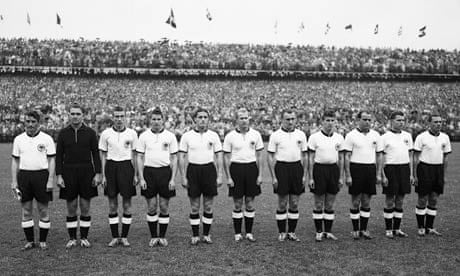West Germany's 1954 World Cup-winning team, feted for helping the nation recover after the second world war, may have been boosted by a secret doping programme, according to a new university study.
West Germany beat Hungary, the clear favourites, 3-2 in the final in Switzerland in a victory that became known as the Miracle of Berne.
"There are several strong indications that point to the injection of [methamphetamine] pervitin in some Germany players and not vitamin C as it was claimed," said the sports historian and author Erik Eggers, who conducted the study as part of a team at Humboldt University in Berlin.
Pervitin was a known stimulant at the time and had also been distributed to German soldiers in the war. Team officials had said they had injected their players only with vitamin C during the tournament, but no drugs tests were conducted at the time.
Eggers has been studying the case for some years, with his report forming part of a wider project called "Doping in Germany", launched by the country's sports authorities to investigate its doping past.
"Pervitin was at that time widely used in many sports and amphetamines were said to be also used by South America players," Eggers said. "What is suspicious is that these injections to German players were distributed secretly and the only reason they became known was because those who got injected contracted jaundice."
Hungary had demolished the Germans 8-3 in the tournament's group stage, making West Germany's final win all the more surprising.
"The most important indication, though, is that vitamin C is not injected. This is very unusual. They could have just eaten an orange instead."
German football federation officials could not be reached for a comment, while the German Olympic Sports Union, the country's umbrella sports organisation which launched the "Doping in Germany" project with other sports authorities, said they were aware of Eggers' study.
"Keep in mind these are indications and not proof," said a DOSB official.
Many Germans view the 1954 win as the springboard of the country's remarkable soccer success in the World Cup – they have won three and been runners-up four times – and a key moment of renewed optimism in postwar Germany.
